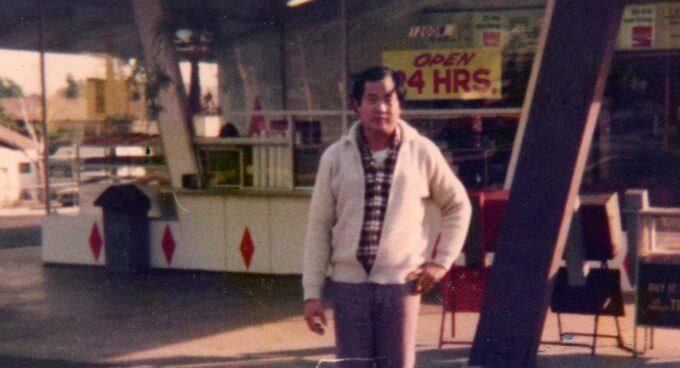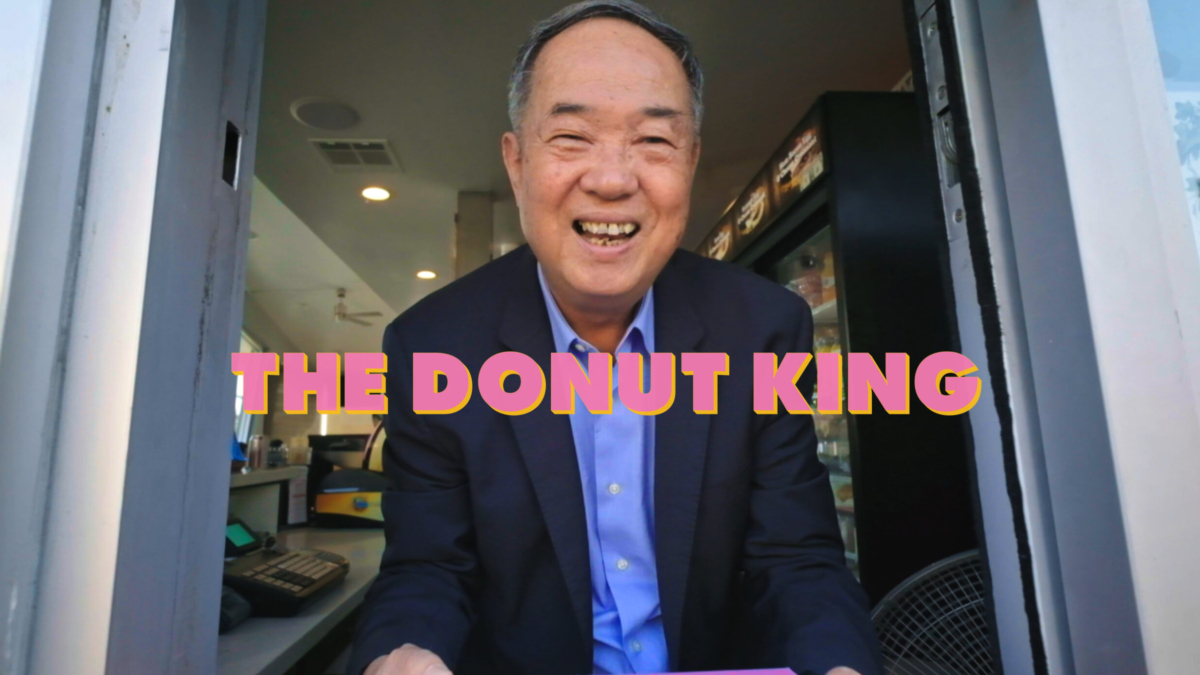Written By: Michelle Ahn
In the northeast, America runs on Dunkin, but on the west coast, Americans relied on one of its immigrants to get their donut fix. “The Donut King” follows the life of Ted Ngoy, from his immigration story as a Cambodian refugee to his rise as a multi-millionaire baking America’s beloved donuts. In her feature directorial debut, Alice Gu uses Ted Ngoy’s rag to riches story and his empire to share deeper philosophical thoughts on humanity, capitalism and greed in the United States.
There is one donut shop per 7,000 people in Los Angeles and around 90% of the donut shops in California are owned by Cambodian families. The person who is responsible for this amazing statistic is incontestably Ted Ngoy. Originally an army Major in Cambodia, he came to America in 1975 as a refugee to escape the Cambodian genocide with his wife, Christy (formerly Suganthini) and his children. After receiving a sponsor from a pastor, Ted worked his way up from church custodian to gas station attendant to entrepreneur.
After tasting his first donut, which reminded him of the Cambodian cake “nom kong,” Ted saw an opportunity for him and his family to finally obtain the American Dream. He enrolled in Winchell’s Donuts three-month training program and in 1976, he opened his very first store in Newport Beach. Little did Winchell know they were “training the enemy,” a man who would soon make Cambodian-owned donut shops the dominant choice for all donut consumers.
Despite their little knowledge of English, Ted baked as his wife, Christy, charmed the customers at the counter. Their kids helped when they weren’t in school, as someone in the documentary notes, “We have the next generation working here. We don’t just have kids; we have future employees.” Together they worked their way up to around 65 stores in the 1980s and profits as high as $100,000 a month in 1985. By then, he became known as “Uncle Ted” for his philanthropy in sponsoring more than 100 Cambidan refugee families and for helping fellow Cambodians open their own donut stores through his store leasing program. In honor of this, “The Donut King” as a film is also donating a portion of its proceeds to Refugees International.

Through Gu’s careful direction in telling Ted and fellow Cambodian store owners’ refugee stories, we learn about the mass destruction and atrocities during the Cambodian genocide under the Khmer Rouge. During these dark times, for many refugees, America was their only hope and chance at a life. We go back to an era when America was a benevolent country, displaying front and center their pride in being the world’s oldest democracy. Using archival footage, “The Donut King” shows former presidents from Carter to Reagan to H.W. Bush constantly reminding the public that the U.S. is a country built from immigrants. As we know, the U.S. unfortunately does not have the same benevolent image today, especially towards immigrants and refugees.
Under new leadership and an ever-increasing polarized public, the U.S. seems to have forgotten that sharing is caring. We have walls to discourage immigrants from entering and we have rhetoric that sees immigrants and refugees as threats to work and wages rather than as fellow human beings. Perhaps Gu’s greatest achievement is her use of suspense throughout the film, a feat that is usually seen more in narrative films than documentaries. Surely, just like our country, Ted must have a low point too.
With great rise comes great fall and Ted was not immune to this. The lures of capitalism and greed eventually overpower him among flashy lights and grandeur. We finally see that Ted, who for most of the documentary is portrayed to be a benevolent, charitable man, is also prone to greed and vices.
Even just a few years ago, “The Donut King” may have just been a powerful story of a man who conquered the American Dream and let the greed of capitalism become his demise. But in 2020, “The Donut King” also serves as a metaphor to today’s political climate and proves that the United States is a country built by immigrants. In this sense, “The Donut King” serves as a nice reminder of what America used to be for many, and perhaps is the quintessential reason why we need Gu’s “The Donut King” now more than ever.
“The Donut King” will screen at the 43rd Asian American International Film Festival. Ticket and screening information can be found here.

